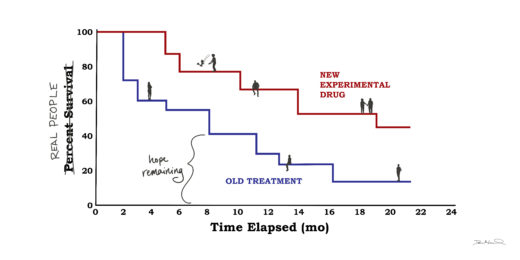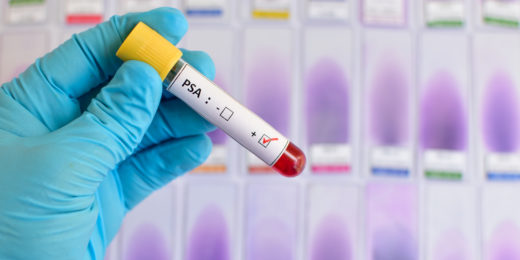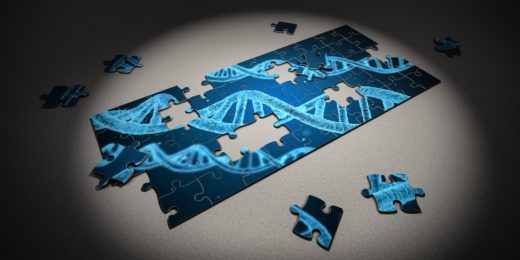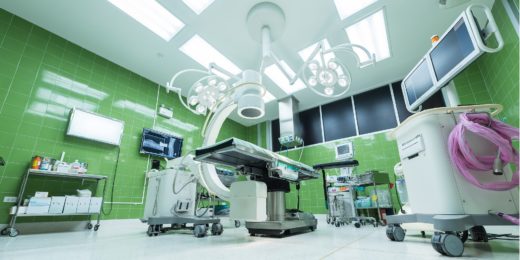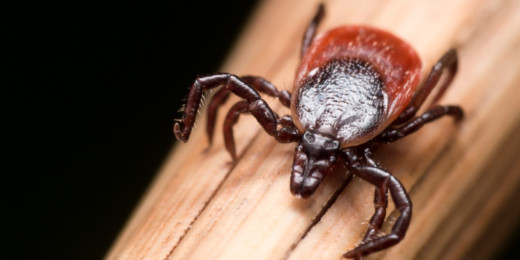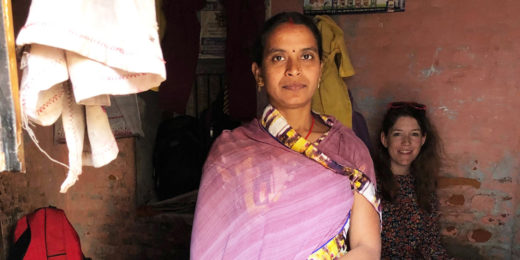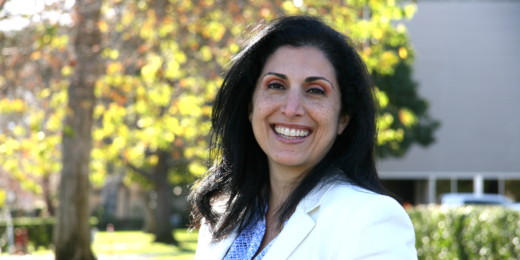First-year medical student Orly Farber shares lessons learned after hearing about a loved one's disease.
Month: May 2018
Some men should consider prostate cancer screening, Task Force believes
The U.S. Preventive Services Task Force is now recommending that men aged 55 to 69 should talk with their doctors about prostate-specific antigen screening.
Countdown to Big Data in Precision Health: Where machine learning and clinical care intersect
Jenna Wiens, an assistant professor at the University of Michigan, speaks to how big data, machine learning and health care intersect in advance of the Big Data in Precision Health conference at Stanford.
New “MAGESTIC” gene-editing technology makes precise changes to millions of cells at once
A new gene-editing technology enables scientists to make thousands of edits at once and track them with specific barcodes.
Artificial intelligence in medicine — predicting patient outcomes and beyond
Stanford researcher Nigam Shah discusses a new study in which a machine learning system predicts patient outcomes, and he outlines the implications for artificial intelligence in medicine.
U.S. doctors saddled with four times the amount of note taking as foreign counterparts
Regulatory reform could reduce the bloated documentation requirements facing American physicians and help to reduce rising levels of burnout.
Third-hand smoke increases asthma severity in mice
Exposure to 'third-hand smoke' — that is, the chemicals left behind on household surfaces after smoke has dissipated — increases the severity of asthma symptoms in mice. Stanford researchers are working to learn how this happens, and whether it might be possible to protect people with asthma from this exposure.
Is climate change fueling the spread of Lyme disease? A podcast
During a podcast, the author of "Lyme: The First Epidemic of Climate Change" talks about the growing worldwide threat of this disease and the urgent need for more research into treatment and prevention.
Stanford-developed app curriculum empowers health care providers in India
An app-based health training and triaging program spearheaded by Stanford's Ayesha Khan is now in use in India, and has led to the creation of village-based health workers.
Good fences make good neighbors — Stanford researchers unravel mystery about a well-known cancer culprit
Stanford researchers solve a long-standing mystery as to how mutations in a neighboring stretch of DNA can increase the expression of a cancer-associated gene called Myc. The finding highlights a potential new class of targets to block cancer cell growth.
Parkinson’s is more complex than anyone thought, new research suggests
Stanford researchers set out to test a seminal theory of Parkinson’s disease and several related conditions. What they found is more complex than anyone had imagined.
Stars of Stanford Medicine: Ultra ultrasound supporter
In this Stars of Stanford Medicine feature, Laleh Gharahbaghian shares her love of ultrasound and reflects on her career and her role models.
Hormone levels in fluid around brain could be an autism biomarker
Vasopressin levels are low in the cerebrospinal fluid of less-social rhesus monkeys and in people with autism, the study found. The discovery suggests that it may be possible to design a lab test to identify autism in kids.
Stanford team tests sleep monitoring for asthma patients
Ask a child with asthma how easily he or she can breathe, and you won’t get an objective answer. But where Q&A fails, technology can take over, according to a team of Stanford researchers who are developing a way to predict asthma attacks in advance.
Found in a mouse: the brain’s “face your fear” center
The discovery, in mice, of a pair of nerve clusters regulating fearful versus bold responses to a visual threat could help people with excessive anxiety, phobias or post-traumatic stress disorder lead more normal lives.
A medical student’s reflection on time, our scarcest resource
In this Stanford Medicine Unplugged piece, second year medical student Natasha Abadilla reflects on the importance of time.


